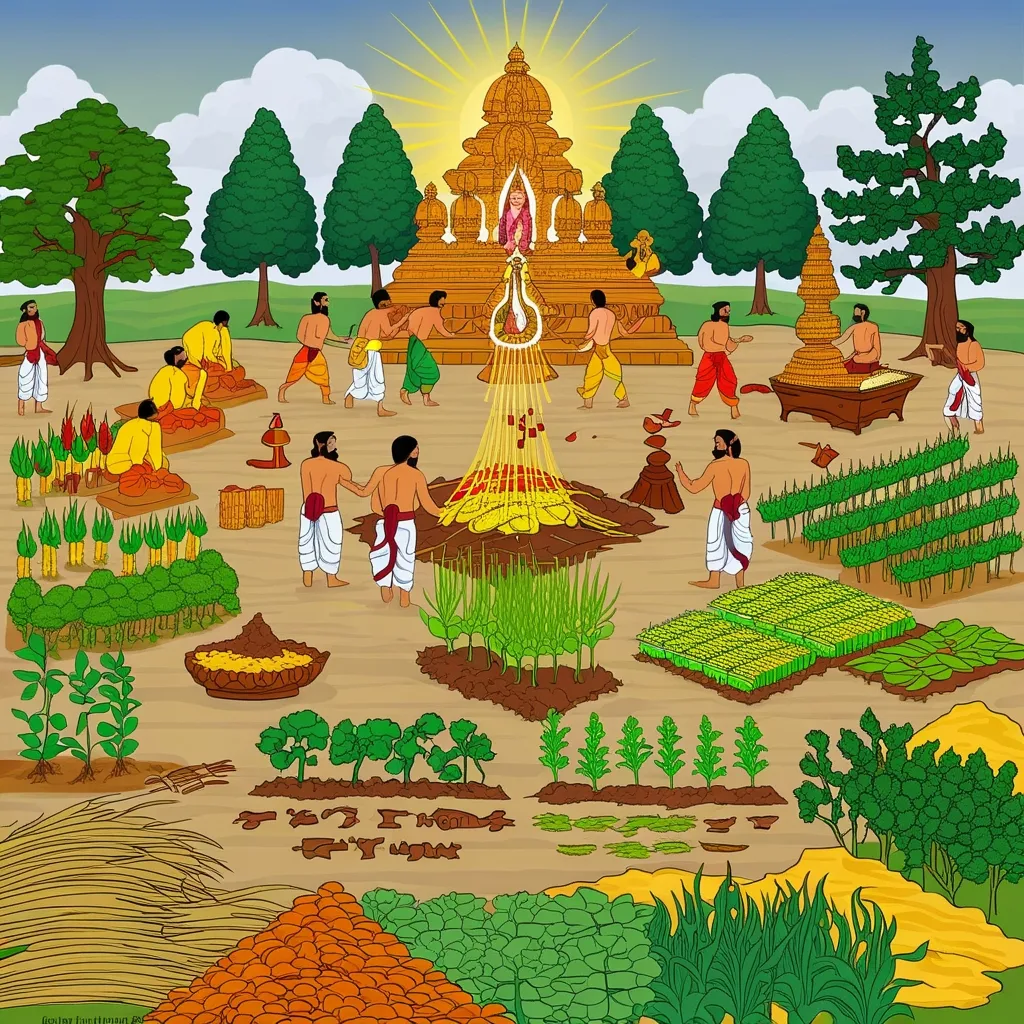Back in the ancient Vedic times, agriculture was not just about growing food—it was a way of life, deeply intertwined with spirituality and rituals. One of the core texts from this era, the Yajurveda, gives us a fascinating look into how they viewed farming and crop cultivation.
The importance of the land itself can’t be overstated. The Yajurveda highlights how essential fertile soil was for successful farming. Different kinds of farmers are mentioned, from the cultivator to the sower, each playing a critical role in the whole process. This reflects just how organized and community-driven agriculture was back then. Everyone had their part.
One of the most intriguing aspects is the rituals aimed at ensuring crop fertility. The Cāturmāsya, or four-monthly sacrificial rites, were performed at the start of each season. These weren’t just simple ceremonies. They included offerings to secure good rains, bountiful food, and the increase in livestock. For instance, during the rainy season, they performed the Varuṇāpraghāsa ritual specifically to ensure rain and fertile crops.
And it’s not just about the rituals. The Vedic people also engaged in symbolic agricultural activities during these ceremonies. They would sow various seeds in the same field, hoping for a diverse and bountiful harvest. Such practices show a deep connection with nature and a belief that every little action could influence their yield.
The Yajurveda also dives into specific offerings and rituals designed to boost crop fertility. Take the Śuṇāṣīrā ritual, for example. It involved offerings to the “geniuses of the plough,” ensuring the plough worked effectively. It’s fascinating to think that something as practical as ploughing could have a spiritual dimension.
Medicinal herbs and plants also played a crucial role in Vedic agricultural practices. They weren’t just used for human health but were believed to enhance crop fertility too. Barley, or yava, was offered to deities to treat diseases, while śyāmāka was believed to boost virility. It’s like they had a holistic approach, blending farming with healthcare.
Trees and vegetation held a sacred place in their culture. The Yajurveda lists numerous herbs, vines, shrubs, and trees essential for rituals and daily life. Killing or cutting a tree was considered a crime against the deities, showing the deep reverence they had for nature. It’s a perspective that feels incredibly poignant today.
These rituals weren’t just seasonal but were woven into daily life as well. The Agnihotra ritual, performed twice daily, involved offering milk to a sacrificial fire. This simple act was believed to bring long life, health, and prosperity. It’s a reminder that even daily chores had a deeper meaning and purpose.
What’s striking is the community involvement in these rituals. The Agnihotra ritual, for example, needed at least four people to perform it—underscoring a sense of shared responsibility and collective benefit. It wasn’t just about individual success but the prosperity of the entire community.
The Yajurveda even goes into the tools and implements used in these rituals. From the agnihotrasthālī (a pot for milking) to the agnihotrahavani (a larger ladle), every tool had its significance, adding another layer of meaning to their practices. It shows how meticulous they were, ensuring every step was done with precision and reverence.
Their connection with nature was profound. They believed every action impacted the natural world, and this is evident in rituals like the Varuṇāpraghāsa, which aimed at ensuring rain. These practices weren’t just practical but spiritual, emphasizing a harmony with nature that feels incredibly relevant today.
Despite being ancient, these rituals and practices offer valuable lessons for the modern world. They emphasize sustainable agriculture, community involvement, and a deep reverence for nature. In today’s era of environmental consciousness, the Yajurvedic approach to agriculture is not just fascinating but instructive.
In the end, the Yajurveda provides a rich and detailed look at how agricultural practices in the Vedic period were more than just about growing crops. They were deeply spiritual and ritualistic, emphasizing a balance with nature. These ancient practices continue to inspire and inform modern approaches to sustainable agriculture, reminding us of the importance of working in harmony with the world around us.






